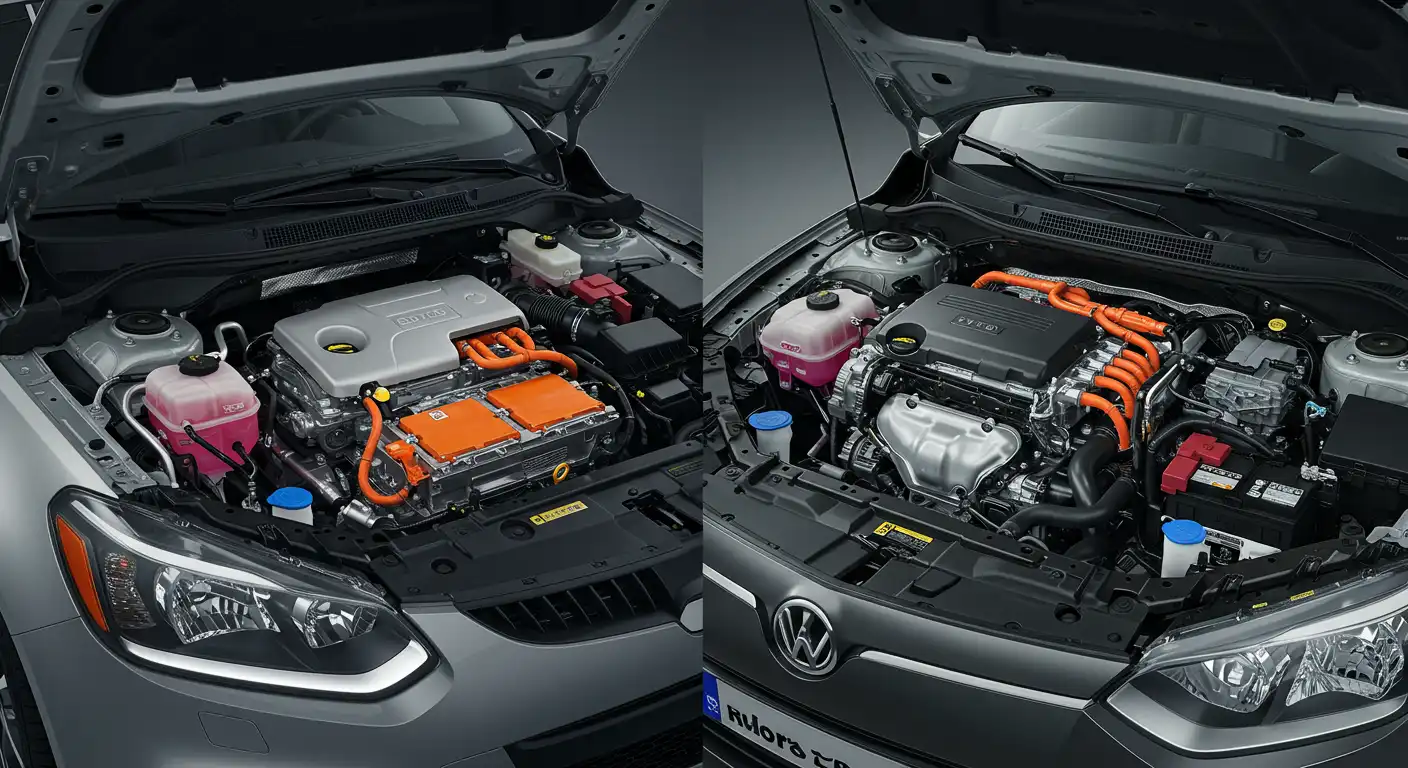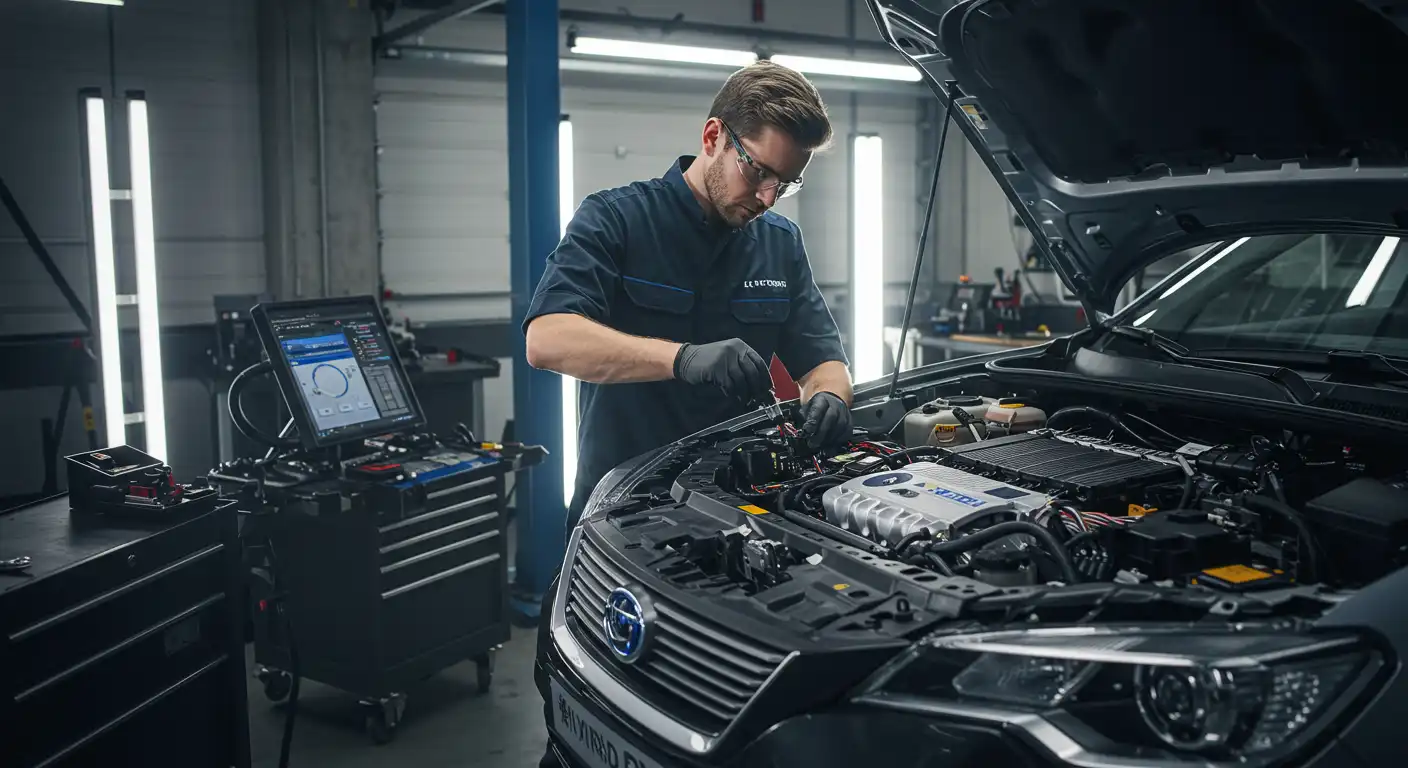Performance Tuning for the Electric & Hybrid Revolution: What You Need to Know in 2025
The automotive industry is in the midst of a major transformation. As electric and hybrid vehicles become increasingly popular, performance tuning is evolving to meet new challenges and opportunities. For years, tuning meant modifying mechanical parts and fine-tuning engines. Now, in the era of electrification, the focus is shifting to software-driven solutions, battery optimization, and intelligent torque management. This change is reshaping the way enthusiasts and professionals think about speed, efficiency, and driving experience.

Why Electric and Hybrid Tuning Is Different
Traditional performance tuning often involved replacing parts, modifying intake and exhaust systems, adjusting fuel maps, and upgrading turbos or superchargers. Electric and hybrid vehicles, however, operate on fundamentally different systems. Instead of a gasoline engine alone, they rely on electric motors powered by high-voltage batteries, sometimes working in conjunction with smaller internal combustion engines.
Because of this, performance upgrades for EVs and hybrids typically require a more precise and technological approach. In many cases, it’s less about hardware swaps and more about refining the vehicle’s existing systems through advanced programming and calibration.
Key Challenges in EV and Hybrid Tuning
- Battery Management: Increasing performance without harming battery life or thermal stability.
- Software Restrictions: Many EVs come with manufacturer-imposed software limits on torque, speed, or acceleration.
- Integration with Safety Systems: Performance tweaks must not compromise regenerative braking, traction control, or electronic stability control.
Modern Performance Tuning Techniques for Electric Vehicles
The latest tuning techniques for electric and hybrid cars focus on making adjustments that enhance performance without sacrificing efficiency or reliability. Here are the top areas where changes can be made:
1. Battery Management System (BMS) Optimization
The Battery Management System is the heart of an EV’s performance. Skilled tuners can optimize the BMS to deliver more consistent power, extend peak output, and better manage thermal performance. This results in stronger acceleration without causing battery degradation.
2. Torque Curve Mapping
Electric motors can deliver maximum torque instantly, but that power needs to be carefully managed for safety and traction. Torque mapping allows tuners to adjust how quickly power is delivered, giving drivers a smoother or more aggressive feel depending on their needs. In hybrids, torque mapping can balance the electric motor’s output with the combustion engine for optimal acceleration.
3. Regenerative Braking Calibration
Regenerative braking not only helps recharge the battery but also affects how the car handles. Custom tuning can modify the aggressiveness of regen braking, making it more suitable for sporty driving or smoother for daily commuting.
4. Software-Defined Driving Modes
One of the most exciting developments in EV tuning is the creation of custom driving modes. Imagine toggling between “Eco,” “Sport,” and “Track” modes, each with its own torque delivery, steering weight, and suspension settings. Software updates can unlock hidden potential and tailor your car’s personality to your preferences.
5. Aerodynamic & Rolling Resistance Enhancements
While not strictly software-based, improvements in wheel alignment, tire selection, and aerodynamic add-ons can complement EV tuning by reducing drag and increasing efficiency—allowing the power upgrades to shine.

Performance Tuning for Hybrids: A Balanced Approach
Hybrids require a unique balance between their electric and combustion components. Tuning can focus on improving how the two systems interact, ensuring smoother transitions between electric-only mode and hybrid mode. Adjustments can also enhance fuel efficiency, boost acceleration, or improve regenerative braking.
Common Hybrid Tuning Strategies
- Improving electric motor assist at lower RPMs for faster launches.
- Refining the handoff between the electric motor and combustion engine for smoother acceleration.
- Optimizing regenerative braking to recover more energy without sacrificing driving feel.
Safety and Warranty Considerations
Before making any performance modifications to an electric or hybrid vehicle, it’s important to understand the potential risks. Some software modifications could void manufacturer warranties, and aggressive tuning might strain components beyond their design limits. Always work with reputable professionals who have experience in EV and hybrid systems, and ensure that safety systems remain fully operational.
Why Performance Tuning for EVs and Hybrids Matters
The rise of electric and hybrid tuning isn’t just a passing trend—it’s the future of performance driving. As more manufacturers release electric sports cars and high-performance hybrids, the demand for personalized driving experiences will grow. Whether it’s quicker acceleration, better handling, or enhanced efficiency, tuning can make your EV or hybrid truly yours.
Getting Started with Your Own Electric or Hybrid Tune
If you’re ready to explore performance tuning for your EV or hybrid, start by researching shops with proven expertise in electric drivetrains. Look for specialists who understand your specific make and model, and ask about their approach to safety, warranty, and software compatibility. Consider beginning with mild software adjustments before moving to more aggressive changes.
Conclusion
Performance tuning for electric and hybrid vehicles in 2025 is redefining what it means to customize a car. With advancements in software, battery management, and torque control, drivers can enjoy a new era of speed and personalization—without sacrificing efficiency or safety. As technology continues to evolve, so too will the opportunities for EV and hybrid enthusiasts to make their mark on the road.
Want to learn more about maximizing your car’s potential? Check out our other articles, including Top 5 Signs Your Car Needs Performance Tuning and The Ultimate Guide to Turbocharging.

